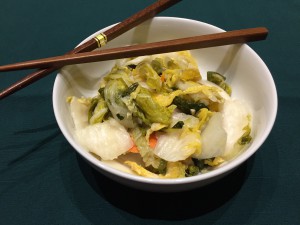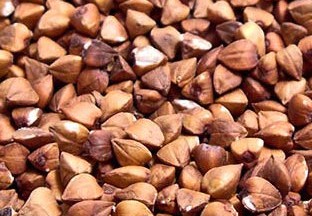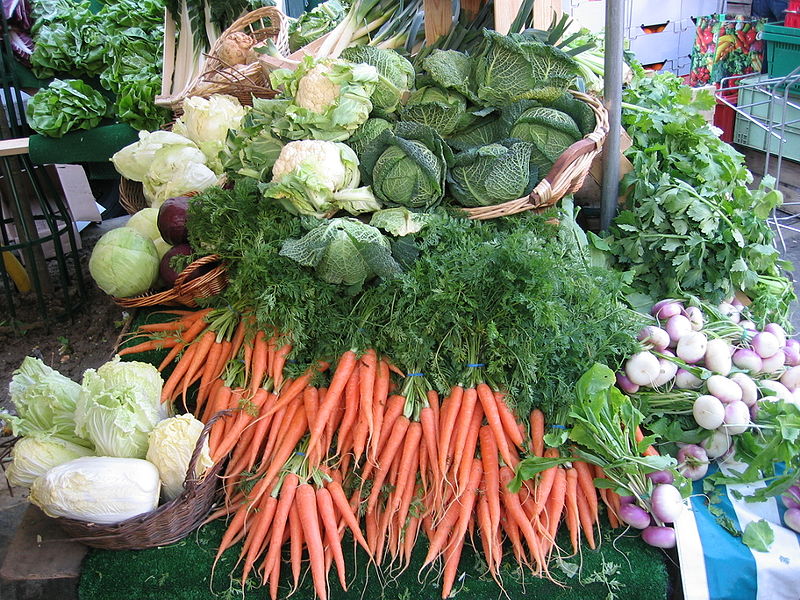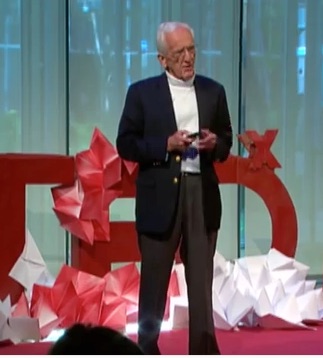
by plant4health | Jul 30, 2015 | Nutrition, Plant-based, Vegan, WFPB, Whole food
Humans have been fermenting foods for thousands of years as a means to preserve food, enhance its flavor or to make alcoholic beverages. Many types of plant foods can be fermented, including:
- Soybeans: soy sauce, miso and tempeh
- Grains: beer, bread made with yeast, whisky, vodka
- Vegetables: kimchi, sauerkraut, beets, carrots and more…
- Fruits: wine, vinegar, cider, brandy
- Tea: kombucha
Even chocolate is fermented! The cacoa seeds are fermented to develop flavor and reduce bitterness.
Fermentation is a metabolic process in which sugars are converted to acids, gases or alcohol via yeast or bacteria. In lacto-fermentation, lactobacillales, a bacteria found in plants and animals, converts sugars into lactic acid. This acid inhibits the growth of harmful bacteria, therefore preventing spoilage.
Health benefits of fermented vegetables
(more…)
![Buckwheat – An Amazing Superfood]()
by plant4health | Jul 23, 2015 | Nutrition, Plant-based, Recipes, Sustainability, WFPB, Whole food, Whole food, plant-based

Buckwheat Groats
Buckwheat is one of the most commonly overlooked gluten free whole grain “substitutes”. I classify it as a grain “substitute” because, while most people think of buckwheat as a grain, it is actually a fruit seed. Although it’s name suggests it’s a member of the wheat family, buckwheat is not related to wheat and is completely gluten free.

Buckwheat Flower
Because the buckwheat plant is not susceptible to any major diseases or pests, it’s easy to grow, making it an inexpensive grocery item. Due to its easy to grow nature with blossoms that attract beneficial insects and pollinators, it is often used as a cover crop for weed control in sustainable agriculture.
Buckwheat is a nutrient rich superfood. It’s one of the best sources of high quality plant protein because it contains all eight essential amino acids with high concentrations of potassium, magnesium and more. It’s significant amount of B vitamins promotes healthy skin and hair while the high amounts of fiber supports gut health.
(more…)

by plant4health | Jul 9, 2015 | Nutrition, Plant-based, Vegan, WFPB, Whole food, Whole food, plant-based
 The terms vegan and plant-based have been used interchangeably as a way to describe those that do not eat animal products. However, the two types of diets are very different.
The terms vegan and plant-based have been used interchangeably as a way to describe those that do not eat animal products. However, the two types of diets are very different.
Vegan: A vegan diet focuses on the exclusion of animal products (meat and dairy). Some vegans have strong feelings about animal rights and choose to eliminate all types of animal products from their lives, including clothing (wool, silk, leather) and personal hygiene (soaps, lotions, perfumes). They even avoid foods and other products that come from insects (honey, beeswax).
(more…)

by plant4health | Jul 2, 2015 | Nutrition, Plant-based, Recipes, Vegan, WFPB

View Patricia Joy Becker’s video talk on sea vegetables and seaweed.
Sea vegetables (also known as kelp and seaweed) are edible algae that can be eaten as is or used as an ingredient in recipes. The most common types to eat are alaria, arame, dulse, hijiki, kelp, kombu, nori, and wakame. They have been consumed by coastal people for thousands of years and for good reason. According to Dr. Gabriel Cousens in his book Conscious Eating, sea vegetables are packed with protein, vitamins and minerals. In fact, they are “higher in minerals and vitamins than any other class of food” and unlike land vegetables “have all the fifty six minerals and trace elements our bodies require.” In addition to vitamins A, B, C, and E, sea vegetables contain human-utliizable vitamin B12, which is challenging to get on a whole food, plant-based (WFPB) vegan diet. For example, one-half ounce of alaria contains 10 times more vitamin B12 than the recommended daily requirement. One-half ounce of kelp has 1-2 times the daily minimum requirement and nori has 2-3 times.
(more…)

by plant4health | Jun 25, 2015 | cancer, Nutrition, Plant-based, Vegan, WFPB, Whole food, Whole food, plant-based
 Food choices are very personal, making information that challenges the healthy nature of commonly enjoyed foods very controversial.
Food choices are very personal, making information that challenges the healthy nature of commonly enjoyed foods very controversial.
With the advancements in technology, new scientific discoveries are forcing us to question our fundamental beliefs about our diet and how it affects our health. If we hope to cure our society’s current health crisis, we need to pay attention to what science is telling us.
Fact: science has discovered a connection between consuming animal products and cancer.
(more…)
![Buckwheat – An Amazing Superfood]()
by plant4health | Jun 18, 2015 | cancer, Healing, Nutrition, Plant-based, Vegan, WFPB, Whole food, plant-based
 It’s no secret that the United States has a health care crisis. In this TED Talk, Dr. T. Colin Campbell, Professor Emeritus at Cornell University and co-author of several nutrition books including The China Study and Whole, shares his view on how we can each heal ourselves and tackle the health crisis in our country.
It’s no secret that the United States has a health care crisis. In this TED Talk, Dr. T. Colin Campbell, Professor Emeritus at Cornell University and co-author of several nutrition books including The China Study and Whole, shares his view on how we can each heal ourselves and tackle the health crisis in our country.
View the video on YouTube.
Here are some key take-aways from his talk:
(more…)







